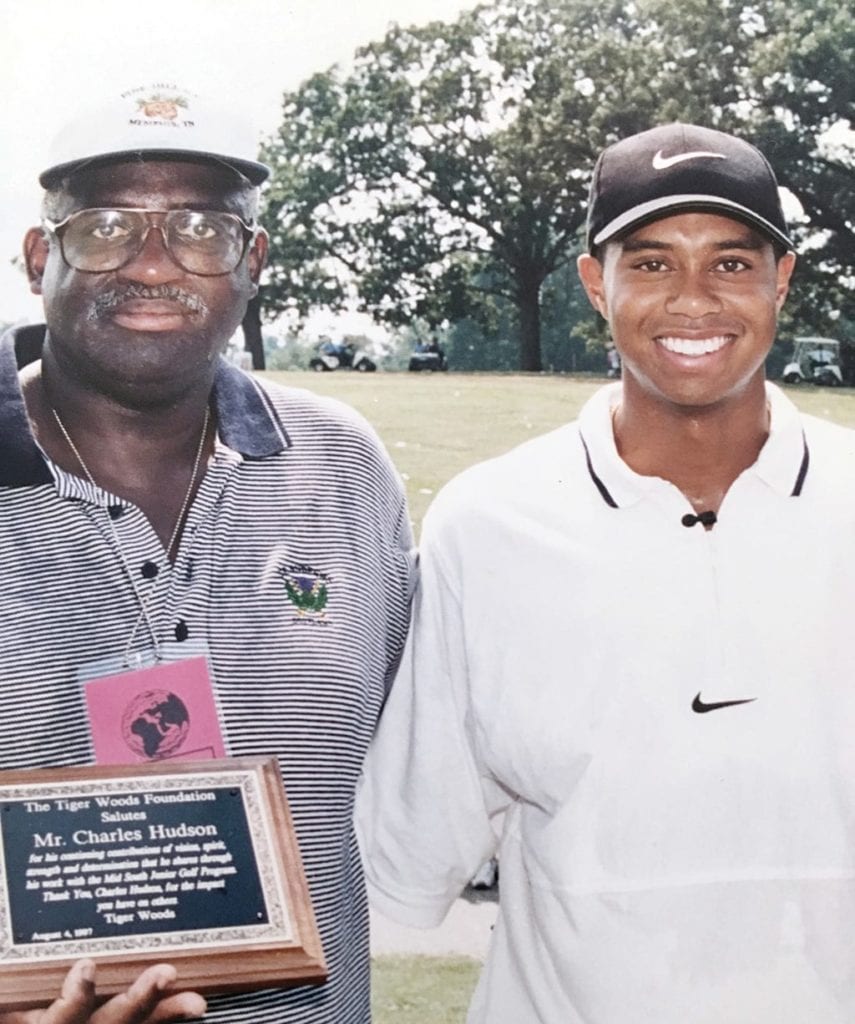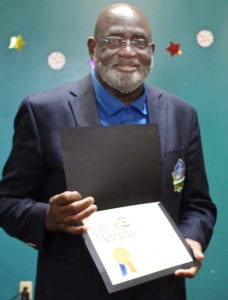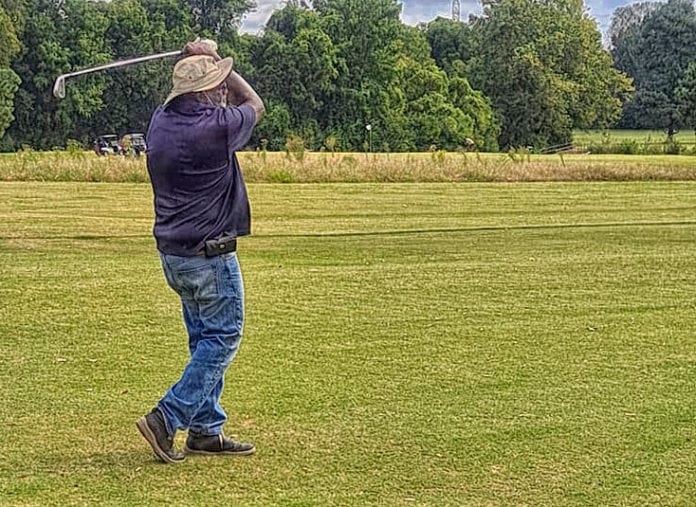Charles Hudson was one year in as the new golf pro at Pine Hill Golf Course.
Surrounded by hundreds of children in an underserved community, he envisioned a golf clinic to teach African-American youth skill and technique.
Older, experienced regulars would help coach and instruct.
It was summer, and the kids were hanging out at the park — not much else to do.
Finally, Hudson was ready to cast his net. Who wanted to learn how to play golf?
As it turned out, hundreds did.

In 1990, a 15-year-old Tiger Woods had won the Junior World Golf Championships. Hudson became golf pro in 1989.
That next year, he organized a youth tournament. Young golfers from out east came over to compete with untrained African-American children.
“There were 80 or 90 junior golfers competing. An older lady came to me and said, ‘Those children from the other side of town should not be competing with our children. They are getting pars and birdies, while our children are shooting tens and twenties for each hole.’
“It was true. Our children didn’t know technique. They had developed no skill, and they had no idea about the rules and etiquette of the game.”
Hudson knew a youth golf program could change all that. He began to work out how such a project would actually work.
It was a massive undertaking. Nothing of that sort had ever been attempted.
But there were few activities for children. How many could he save from getting into trouble with a youth program?
It was settled. Hudson would become the “golf father.”
“That was the beginning of our Mid-South Junior Golf Association, in 1991,” said Hudson. “I left flyers in churches and other places in the community where kids were — at corner stores and at other businesses in the area.
“More and more kids were coming every day. At its peak, about 200 kids were there. I had a lot of help from the golfers who played there weekly. Many of those children had no father in the home. So, I knew a big draw for them was just spending time, nurturing time, with a black male, teaching and encouraging them, especially our boys.”
So, Hudson became director of a golf program for “black youth” that would teach them patience and discipline. They would learn how to persevere; that there would be both winning and losing. Both should be faced with grace and civility.
“As much as I loved golf, it was only the vehicle being used,” said Hudson. “I could have been teaching swimming or basketball. It was all the same.
“Mid-South Junior Golf was so much more than just playing golf. It was about building character and teaching life lessons. We knew full well that we were, in many ways, surrogate fathers and the only older, caring men spending time with these young people.”
Hudson groomed a team of “golf fathers” to instruct, mentor and love children who were not their own.
“The program got so full in the summer that we started having it year-round,” said Hudson. “Even if a child did not stay with the program, we had the chance to teach and mentor them for a time. And, that was the important thing. Everybody isn’t going to be a Tiger Woods, but they can grow up to be a good, productive citizen…”
From the Mid-South Junior Golf Association, more than 30 participants went on to win golf scholarships to attend college. And on the local junior golf scene, young African-Americans were winning tournaments and shutting down the competition.

“We were creating winners, but more importantly, we were building character and providing strong male role models that looked like our kids,” said Hudson.
Hudson attended Southern University on a golf scholarship, although he played basketball in high school. The golf team had only five or six members because golf courses in Louisiana did not allow African-Americans to play. Southern University, in the heart of Baton Rouge, could provide only limited competition for the golf team. Hudson never forgot how that made them feel.



